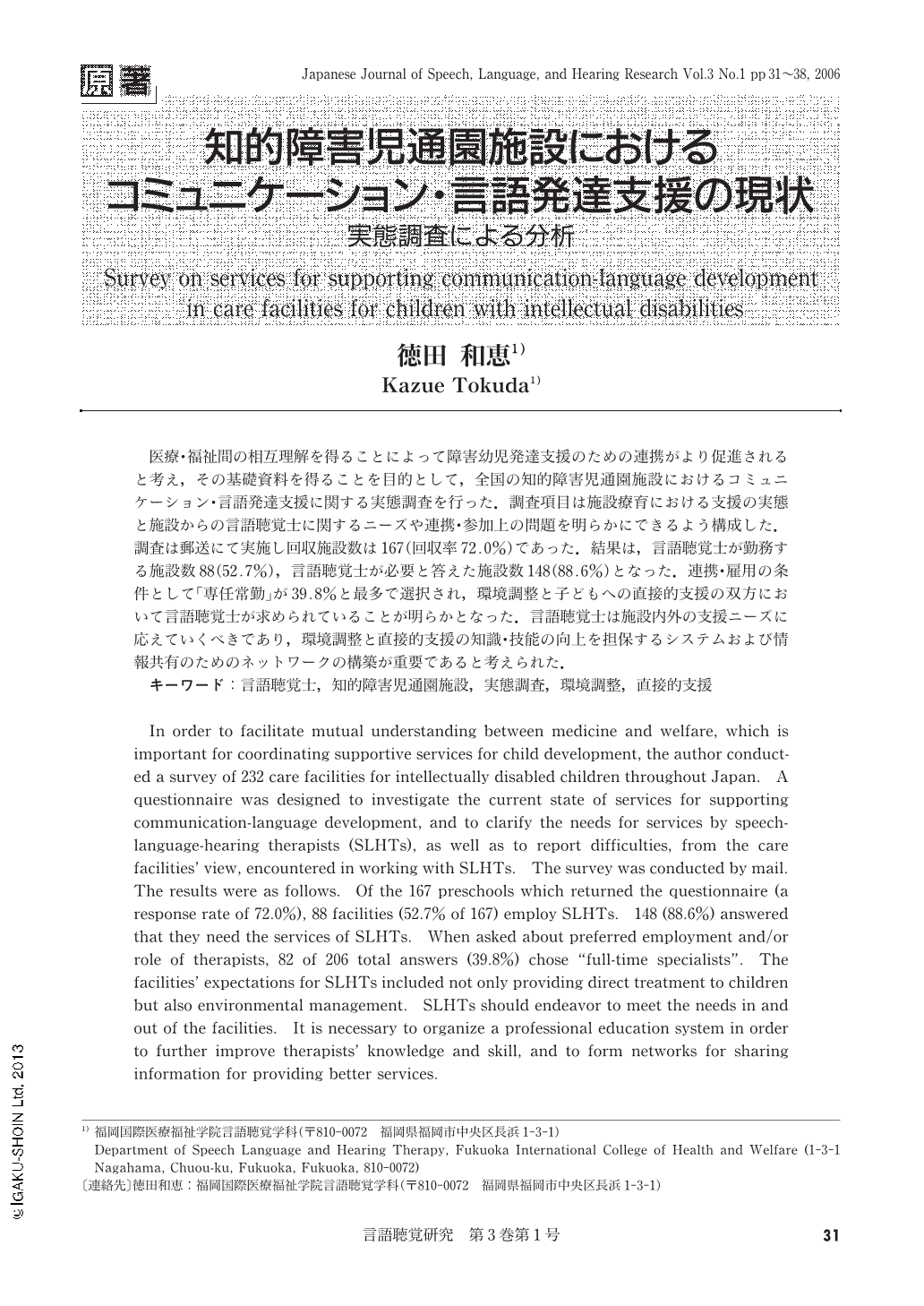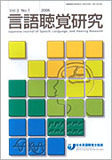Japanese
English
- 有料閲覧
- Abstract 文献概要
- 1ページ目 Look Inside
- 参考文献 Reference
- サイト内被引用 Cited by
医療・福祉間の相互理解を得ることによって障害幼児発達支援のための連携がより促進されると考え,その基礎資料を得ることを目的として,全国の知的障害児通園施設におけるコミュニケーション・言語発達支援に関する実態調査を行った.調査項目は施設療育における支援の実態と施設からの言語聴覚士に関するニーズや連携・参加上の問題を明らかにできるよう構成した.調査は郵送にて実施し回収施設数は167(回収率72.0%)であった.結果は,言語聴覚士が勤務する施設数88(52.7%),言語聴覚士が必要と答えた施設数148(88.6%)となった.連携・雇用の条件として「専任常勤」が39.8%と最多で選択され,環境調整と子どもへの直接的支援の双方において言語聴覚士が求められていることが明らかとなった.言語聴覚士は施設内外の支援ニーズに応えていくべきであり,環境調整と直接的支援の知識・技能の向上を担保するシステムおよび情報共有のためのネットワークの構築が重要であると考えられた.
In order to facilitate mutual understanding between medicine and welfare, which is important for coordinating supportive services for child development, the author conducted a survey of 232 care facilities for intellectually disabled children throughout Japan. A questionnaire was designed to investigate the current state of services for supporting communication-language development, and to clarify the needs for services by speech-language-hearing therapists (SLHTs), as well as to report difficulties, from the care facilities' view, encountered in working with SLHTs. The survey was conducted by mail. The results were as follows. Of the 167 preschools which returned the questionnaire (a response rate of 72.0%), 88 facilities (52.7% of 167) employ SLHTs. 148 (88.6%) answered that they need the services of SLHTs. When asked about preferred employment and/or role of therapists, 82 of 206 total answers (39.8%) chose "full-time specialists". The facilities' expectations for SLHTs included not only providing direct treatment to children but also environmental management. SLHTs should endeavor to meet the needs in and out of the facilities. It is necessary to organize a professional education system in order to further improve therapists' knowledge and skill, and to form networks for sharing information for providing better services.

Copyright © 2006, Japanese Association of Speech-Language-Hearing Therapists. All rights reserved.


